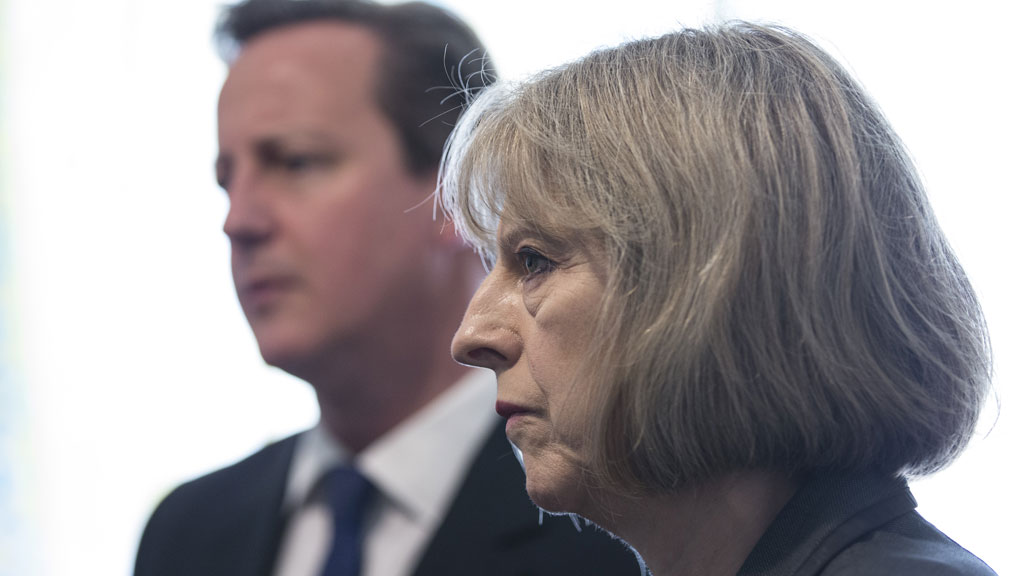Theresa May pledges new laws to tackle extremism
Home Secretary Theresa May is poised to bring in new laws to prevent the spread of extremism, in the wake of the murder of journalist James Foley by Islamic State militants.
- Chapters
- descriptions off, selected
- subtitles off, selected
- captions settings, opens captions settings dialog
- captions off, selected
This is a modal window.
This is a modal window. This modal can be closed by pressing the Escape key or activating the close button.
Home Secretary Theresa May plans to impose stricter measures and bring in new laws to fight the threat of extermism spreading in the UK.
In the wake of the murder of US journalist James Foley by IS jihadists, Mrs May said the UK must use legal powers in a battle against extermism that could last decades.
We must give ourselves all the legal powers we need to prevail Home Secretary Theresa May
New powers will be examined to stop radical preachers, as well as banning orders for extremist groups.
Writing in the Daily Telegraph, she emphasised changes to the law that allowed the government to strip naturalised Britons of their citizenship if fighting overseas and exclude them from the country.
“We will be engaged in this struggle for many years, probably decades,” she wrote.
“We must give ourselves all the legal powers we need to prevail. I am looking again at the case for new banning orders for extremist groups that fall short of the legal threshold for terrorist proscription, as well as for new civil powers to target extremists who seek to radicalise others.”

She said people who travelled to fight in Syria and Iraq “will be investigated by the police and security services.”
“While it is illegal for any country to make its citizens stateless, any British national who returns from Syria and Iraq faces prosecution here for participating in terrorist activities abroad,” she added.
More than 150 people have been excluded from Britain for “unacceptable behaviour” since the coalition came to power in 2010, including foreign hate preachers. Police have also removed 28,000 pieces of terrorist material from the internet.
Mrs May said the “cowardly murder” of James Foley this week “demonstrated once again the very deadly threat we face from terrorism at home and abroad”.
Ally with Assad?
Since Mr Foley’s murder, the government has come under pressure to collaborate with Syria’s President Bashar al-Assad to defeat the spread of IS in Syria and Iraq.
Lord Dannatt, former head of the British Army, said in tackling IS, the US and Britain wold need to build bridges with Syrian President Bashar al-Assad, a leader both countries have said should be removed.
General Martin Dempsey, chairman of the US joint chiefs of staff, said IS was “an organisation that has an apocalyptic, end-of-days strategic vision and which will eventually have to be defeated”.
He added: “Can they be defeated without addressing that part of their organisation which resides in Syria? The answer is no. That will have to be addressed on both sides of what is essentially at this point a non-existent border.”
US Defence Secretary Chuck Hagel said air strikes had helped to stall the IS advance in Iraq, but admitted that Washington needed to take a “cold, steely, hard look” at other measures needed.
But Foreign Secretary Philip Hammond said an alliance with the Assad regime would not be “practical, sensible or helpful”.
Asked if the UK would need to collaborate with the Assad regime, Mr Hammond told BBC Radio 4’s World at One: “No. We may very well find that we are fighting, on some occasions, the same people that he is but that doesn’t make us his ally.”